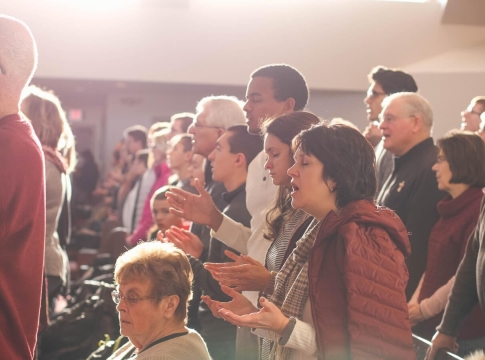
The brevity of the response to this query is: absolutely! Let’s go a bit farther into this response for its extended form.
Isn’t church for Christians only?
The church is a gathering place for Christians. However, this is not a private event. On the other hand, we Christians are glad to welcome non-believers as well to demonstrate to them what it means to be a Christian as we want everyone to know God. A fantastic venue to learn more about Christianity is the church. You wouldn’t be the first to accept what you hear as true and turn to Christianity yourself.
Every church member was an unbeliever first
There are many persons in the church who were once atheists. Nobody “automatically” converts to Christianity at birth. All of us require the Holy Spirit’s transformation and need to be born again. Churchgoers either heard about the Gospel from others or became believers when their parents brought them to church. You are not alone, therefore, if you do not (yet) believe or are unsure about what to believe. You don’t have to wait to attend church to be a Christian!
Jesus set the tone
[Jesus followers] are Christians. He is not only their Savior and Lord, but also their role model. Those who were viewed as outsiders found Jesus to be incredibly appealing. “Come to me, all of you who are weary from the heavy load you have been made to bear,” he said. I’ll let you get some sleep. Accept what I’ve taught you. Take advice from me. In my spirit, I am humble and gentle (Matthew 11:28-29, ERV).
Individuals who disobeyed religious regulations were despised in Jewish society. However, Jesus declared, “I did not come to call good people.” According to Mark 2:17 (ERV), “I came to invite sinners.” He socialized with both believers and non-believers. He extended an invitation to men, women, and children, rich and poor, to come to Him and hear His teachings. He made it possible for everyone to accept faith.
What to expect in a church service?
Every church is unique. Some are big, some are tiny; some are more casual, some more formal. Certain services are longer than several hours. However, a few elements are present in nearly all church services: Scripture readings are followed by a sermon, singing, prayer, and an explanation of the readings. I went into greater detail about this in our piece “[What Takes Place During a Church Service?].”
Can I take part in the church service or can I just watch?
Most of the church service is open to visitors as long as they act politely. Together with listening to the sermon and Bible readings, you can join in on the congregation’s singing. It is not appropriate to voice your ideas during a religious service; instead, you should debate issues in a conversation that follows the service.
One sacrament that you cannot partake in if you do not pretend to be a Christian is the Sacrament of Communion, which is also known as “the Lord’s Supper.” Although it’s not always observed during church services, this sacrament is often observed. Christians commemorate Jesus’ death on our behalf by eating a little piece of bread and sipping a small bit of wine or grape juice at Communion. Most churches will only allow adult Christians to partake in this; non-believers and children should just remain seated or pass the bread and wine to the next person.
Baptism is the other sacrament. This sacrament is not performed weekly, but rather only occasionally. A person is baptized when they join a church for the first time. Babies whose parents attend church are baptized in some churches. In other churches, mature believers who consciously choose to accept Jesus Christ as their Savior are the only ones who are baptized. Being baptized is a significant action. If you don’t genuinely believe in anything, you cannot get baptized “for fun” or “to try.”
Some alternative options
There are alternative options you may attempt if you want to learn more about the Christian faith but going to church is one step too far for you right now.
- You may watch church services on many websites and YouTube channels. This method works well for making an initial impression.
- Many Christians are receptive to inquiries concerning their religion. Try speaking with some Christians if you don’t want to attend church.
- Some faiths provide non-believers with introductory seminars where they can explore their doubts and questions while learning about their core beliefs.
- If there isn’t a church in your area and you don’t personally know any Christians, you might want to sign up for one of our online courses and talk to a mentor about your concerns.





